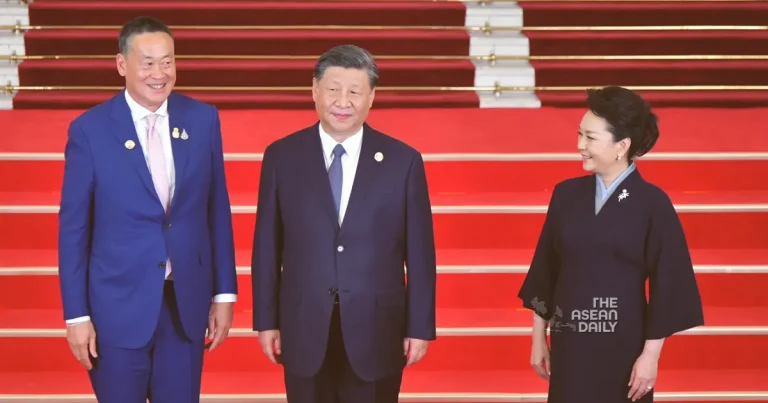19-10-2023 (BEIJING) Prime Minister Srettha Thavisin, currently in Beijing, has unveiled his vision for Thailand’s sustainable development while emphasizing enhanced collaboration with China under the Belt and Road Initiative (BRI). This announcement was made at the “Green Silk Road for Harmony with Nature” forum during the 3rd Belt and Road Forum (BRF) for International Cooperation, hosted at the China National Convention Center (CNCC).
Mr. Thavisin, who also serves as Thailand’s Finance Minister, expressed the importance of prioritizing the following key aspects to realize the forum’s vision:
Green Transition Across All Sectors
Srettha stressed the need for a comprehensive transition towards environmentally friendly practices in all sectors. This includes promoting sustainable production and consumption within the domains of transport, energy, and infrastructure. He underlined the significance of new technologies and digital transformation in this transition, emphasizing the responsible use and equitable access to these innovations.
Thavisin asserted, “Thailand is actively implementing our long-term low greenhouse gas emission development strategy. We have realigned our national energy plan to shift consumption to clean energy and promote energy efficiency. Our goal is to increase the production of zero-emission vehicles to 30% by 2030, encouraging foreign investments in the electric vehicle sector. Furthermore, we plan to scale up sustainable agronomy to reduce climate change vulnerability and enhance farmers’ well-being. These policies are expected to help us achieve our national targets of reducing greenhouse gas emissions by 40% by 2030, reaching carbon neutrality by 2050, and achieving net-zero emissions by 2065.”
Environmental and Ecosystem Conservation
The Prime Minister emphasized Thailand’s commitment to expanding green areas, covering 55% of the country’s total land area. He also highlighted the nation’s dedication to the “30 by 30 Target” for protected marine and coastal areas, a commitment made at COP15 in Montreal, Canada, in December 2022. Thavisin underlined the importance of a sustainable blue economy in realizing a Green Maritime Silk Road.
Environmentally Sound Financing Mechanism
Mr. Thavisin recognized the critical role of financing in facilitating the green transition. Thailand has already raised US$12.5 billion by issuing sustainability bonds for multiple projects. The government plans to introduce sustainability-linked bonds to further bolster the green bonds market. This move aims to incentivize all entities, supporting the private sector and micro, small, and medium-sized enterprises (MSMEs) as they venture into eco-friendly businesses.
Additionally, on the 10th anniversary of the BRI, Prime Minister Thavisin commended China for the significant achievements realized through this ambitious scheme. He expressed that despite Thailand’s relatively smaller size on the global stage, the nation aspires to draw lessons from the BRI and implement them domestically.
Recently, the Thai cabinet endorsed a comprehensive study and implementation plan for the Land Bridge project. This initiative will link the Andaman Sea and the Indian Ocean to the Gulf of Thailand and the Pacific Ocean, enhancing connectivity in the southern Andaman region and reducing travel times through the Strait of Malacca.
Government spokesman Chai Wacharonke revealed that China Harbour Engineering Company Limited (CHEC), a leading engineering firm in China, has shown keen interest in participating in Thailand’s Southern Land Bridge megaproject, with an estimated value of 1 trillion baht. CHEC Chairman Wang Tongzhou expressed this interest during a meeting with Prime Minister Thavisin on the sidelines of the BRF.
Prime Minister Thavisin welcomed CHEC’s enthusiasm and encouraged the company to engage with the Board of Investment (BOI) to gain further insight into investment opportunities. He also suggested that the company consider establishing a regional office in Thailand. The project’s timeline includes an overseas roadshow from November to January to attract foreign investments, with plans to open bidding for private sector participation between April and June. The project, based on a public-private partnership model, envisions the creation of a logistics network connecting Ranong to Chumphon, promising significant advancements in regional connectivity and economic development.




